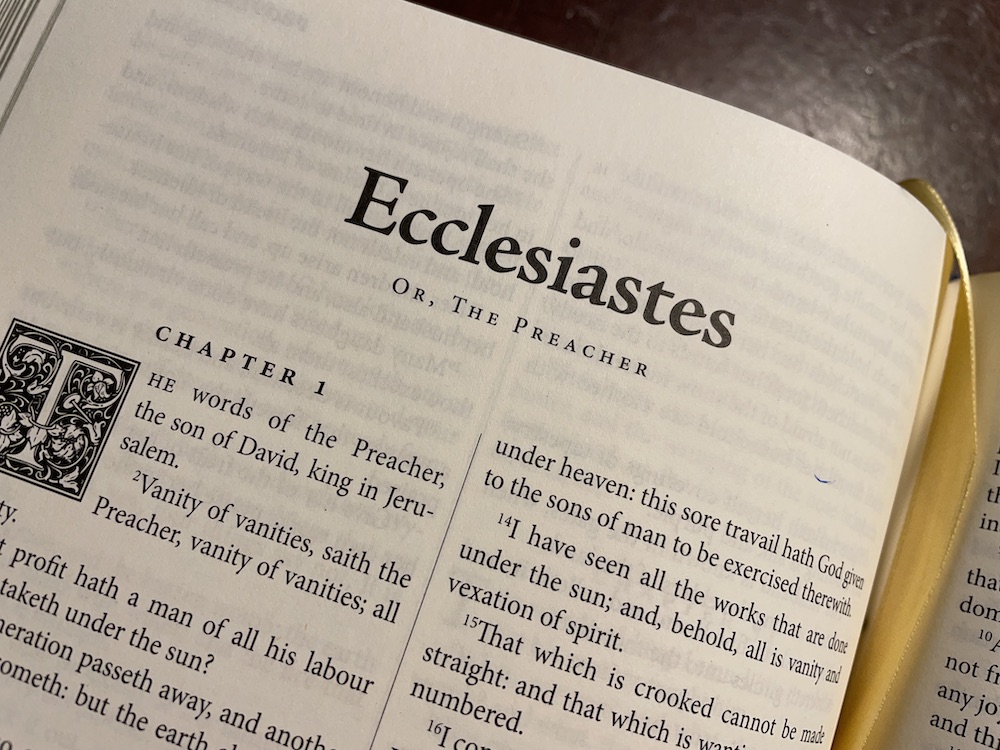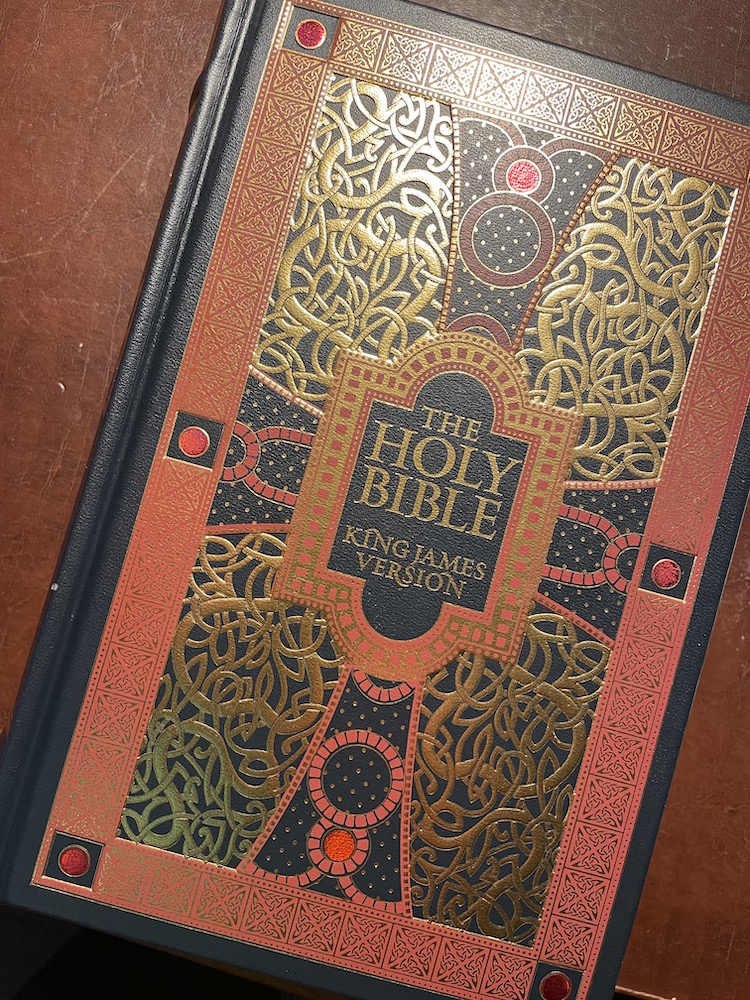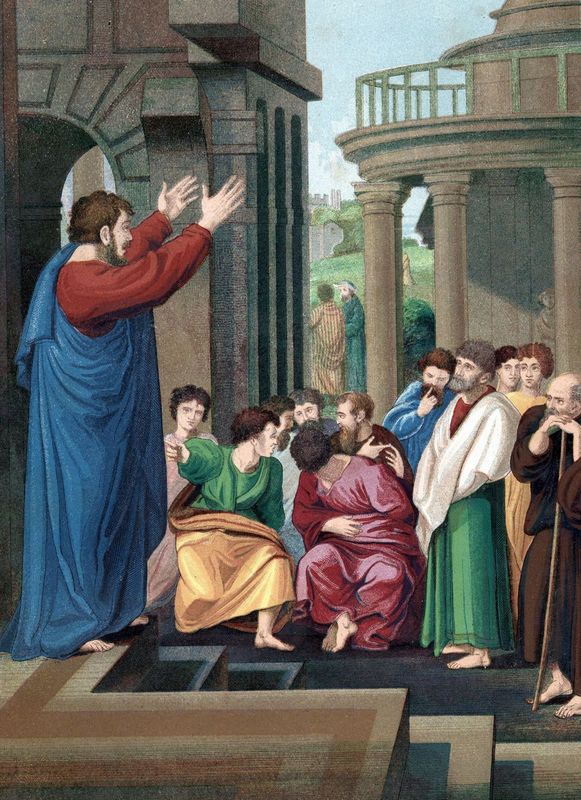
As I rapidly move through my sixth decade of life, I have watched many people come and go, rise and fall, live and die. I have travelled to more than 20 countries on four continents, 25 U.S. states, lived in Europe, started businesses and ministries, been married for decades, raised four children, pastored a church for years, and written and published many writings. I have traversed, climbed and skied the mountains, hung from dizzying heights on ropes, swam in rivers, lakes and oceans, climbed 15 to 20 thousand trees, encountered demons, stared death in the face too many times to remember, and even been sprayed by a skunk. I have been loved as well as hated by those I thought were my friends. Much water has passed under the bridge called life, and now it is time to ponder it all.

Each of us has a story to tell, and as we grow older, we feel the need to share it, but why bother? Who will listen to it anyway? Most people are too wrapped in their own lives to care. Nevertheless, this all causes us to keep searching for meaning and purpose for our existence. And this compels me to return again and again to the Rock of Ages—the Bible, the Word of Elohim and to the source of the Truth that is above and way beyond each of us, for understanding and wisdom in order that I may more fully comprehend the complexities, that is, the whys and wherefores of life.
This all brings me to the book of Ecclesiastes (in Hebrew Kohelet meaning “the Preacher”) to hear from a wise man who had done it all. Here are my recent reflections on the wisdom found in this often overlooked and forgotten book of the Bible. Please enjoy and maybe something said will resonate and bless the reader. —Natan
Ecclesiastes 1

Ecclesiastes 1:2, Vanity of vanities. This phrase is repeated twice in this book: once here at the beginning and once at the end (12:8). The word vanity is a theme that runs through this book occurring 32 times and every chapter at least once except chapter 10. In the course of his varied life, the Preacher discovers that the soft and ugly underbelly and the raison d’etre of nearly every human endeavor that one can imagine is vanity and pride. Vanity is the Hebrew word hebel meaning “vapor, breath, wind” or figuratively, as the author of this book often uses it, “worthless, senseless, empty, futile or vacuous.” The root of the word hebel is the verb “to act emptily.” Thus, as this book reveals, the vast majority of human activities can be summed up as nothing more than being emptiness, meaningless and senseless.
The words vanity (Heb. hebel) and pride (Heb. room), as used in Scripture are different heads of the same evil monster of meaningless emptiness masquerading through the magician’s clever sleight of hand with the aid of smoke and mirrors as human exaltation. The former, as already noted, connotes “emptiness or meaninglessness,” while the latter means “to be high, rise up, extol, lift up, promote and to be haughty.”
Pride is one of the so-called seven deadly sins that YHVH hates and calls an abomination (Prov 6:16–17). Therefore, Scripture reveals that vanity and pride in all of their manifestations are black and detestable in the eyes of Elohim and is not to be found on the paint palette that composes the character portrait of the saint or his life’s activities. On the contrary, Yeshua declares in his famous beatitudes statement that “blessed are the poor [literally, crippled, helpless, down and out] in spirit, for theirs is the kingdom of heaven” (Matt 5:3). In fact, YHVH looks with great favor on those who have “a poor and contrite spirit” and who “tremble at my word” (Isa 66:2). Therefore, it should not be hard to see that vanity and pride are the antithetical character traits of those who are poor or helpless in spirit, and that Elohim disdains and hates the one and highly regards the other showering upon the latter priceless gifts including inclusion in his heavenly kingdom.
Ecclesiastes 1:4, One generation passes away…the earth abides forever. Man is a microscopic drop of water in a vast ocean of time, space and material existence.
Ecclesiastes 1:5–7, The sun rises…and …goes down. The physical creation consists of an endless series of cycles involving time and natural forces. It is akin to a monstrous clock with myriads of integrated gears and wheels of many sizes all clicking along in sync with each other, while man is trapped in the middle of it with no way to escape. He is like a hamster in a cage mindlessly burning enormous amounts of energy running on an exercise wheel yet going nowhere.
Ecclesiastes 1:8, Full of labor. Energy and labor keep this giant cosmic machine going round and round endlessly with man in the middle of it all. Despite the vastness, complexity, wonder of this giant machine called this physical existence, the human eyegate and eargate are never satisfied. Man perpetually yearns for something more, some new thrill, a new achievement, or a new “high” to satiate some deep, longing to be fulfilled, unsated craving deep in his soul, yet to no avail. The relentless craving persists unabated.
Ecclesiastes 1:9–10, That which has been will be. As this giant set of cosmic gears grinds inexorably on with miniscule man at its center, the cycles continue to repeat themselves endlessly. It is true that the actors, costumes, stage venue may change over the millennia, but the quintessential plot remains ever the same. When boiled down to its essential ingredients,reduced to its lowest common denominator, nothing has changed; therefore, there is nothing new under the sun. The nature of man is the same, the plot is the same. Life is still a burdensome task or a sore travail that can be summed up as vanity of vanities leading to emptiness and nothingness. (Actually there is a point to it all, and a way of escape, but that comes later in the book and that is the message of the rest of the Bible!)
Ecclesiastes 1:11, No remembrance. All is soon forgotten. The ripples made by the pebble dropped into the pond of life soon subside and are remembered no more as the pond to as it was before. Therefore, we are back where we started from—vanity, meaninglessness and nothingness.
Ecclesiastes 1:13, Burdensome task [sore travail, KJV]. Everything is a burdensome task or sore travail—an escapable hard labor prison camp of time and space and endless cycles to which man has been inextricably confined since the fall. (So what is the point of it all? The rest of the Bible contains the message of hope for the hopeless.)
Ecclesiastes 1:14, Vanity. Eventually, all of man’s works will come to nothing, nothingness is the definition of hebel, the Hebrew word for vanity. Everything that man does will come to nothing. All houses, buildings and monuments eventually deteriorate and become overrun with weeds and return to dirt from whence it came. Riches come and go, and no one can take it with them when they die. Memories of great people, events and ideas eventually fade away. Nothing physical is permanent.
Grasping for the wind [or vexation of spirit, KJV]. The physical pursuits, pleasures and acquisitions of man do not satiate the inner longings of the spirit of man that is connected to Elohim and to eternity—the spiritual and eternal realm. It is all grasping for the wind—elusive and unattainable.
Ecclesiastes 1:15, Crooked. Man is incurably crooked and Elohim is unwaveringly and immutably straight. The heart of man is especially crooked and cannot be made straight, for as Jeremiah declares, “The heart is deceitful above all things, and desperately wicked [i.e. incurable and sick]; who can know it?” (Jer 17:9). Each person has a giant log of pride wedged into his eye, and he views everyone and everything through the lens of his own strongholds of pride and his past hurts that involve fear, bitterness and unforgivingness. Dislodging that beam takes an act of God! This is because the disease called sin is incurable and terminal and everyone was born with it, and no one can cure himself because sin has too strong of a hold on each person’s heart and mind. Due to his sinful condition, man’s spiritual lack is incalculable.
Ecclesiastes 1:16–17, Look. When all is said and done, man’s condition and the life that he lives still remains the same: a grasping for the wind or seeking that which is unattainable.
When man walked away from Elohim in the garden by partaking of the forbidden fruit in his quest for forbidden knowledge, he bit the big one, so to speak, biting off way more than he could chew. What appeared to be appealing to the eyes, touch and taste quickly turned bitter in his gut, when the reality of the consequences of his actions punched him full force in the face. It was at this time that he had to go to work scraping out a living from the unforgiving weed and briar infested earth. Man was condemned to the hard labor penal colony of this earth to run endless circles on the hamster wheel of making a living day after tedious day before collapsing exhausted at the end of life. When the foolishness naivete of childhood and youth give way to the burdensome and demanding responsibilities of adulthood, only then do a few enlightened souls awaken to the brutal reality of this physical existence. The rest of humanity is too occupied attempting to self-medicate (via drugs, booze, sensual pleasure and entertainment, the acquisition of material good, the seeking of power and fame, etc.) against the pain and reality of a lifetime spent grasping for the wind to wake up to the truth that they need help from above if they are to break free from his life sentence due to his sin. (There is only one way of escape and Jacob dreamed of it when he saw the vision of the ladder to heaven in Genesis 28 and Yeshua interpreted the vision for us in John 1:51.)
Ecclesiastes 1:18, Much wisdom…much grief. It almost sounds as if the Preacher is affirming the idea that ignorance is bliss. In reality, ignorance is not bliss; it is still ignorance. Yet, sometimes two seemingly opposite propositions can be true at the same time. That is to say that too much wisdom and knowledge can lead to frustration, weariness and sorrow; therefore, it is perhaps advisable to know just enough to keep oneself on the straight path, but not so much that such knowledge ruins the little enjoyment that one can squeeze out of this prison camp called life.
My commentary on Ecclesiastes chapter two is coming soon…so stay tuned.


My divine encounter with your
Prophetic Teachings both
in your videos & blogs
had a good & great impact
not only at present but in
eternity,
in my life & others as I shared
your Teachings to many friends,
family,relatives & Christian Pastors
I know.
I do not know what to do without your teachings.
I trusts All your Teachings.
Elohim will surely reward you,
for all the lives you have touched
through your teachings.
I pray that Elohim will give you
more insights & fresh revelations
of His Word.
AMEIN.
INCREDIBLE!
Todah Rabbah
John
There is more coming!